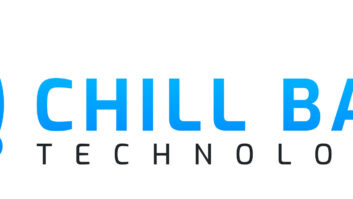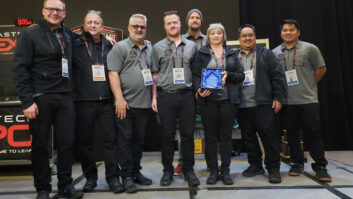The preliminary injunction issued by a federal court to prohibit the sale of DVD-copying software from RealNetworks casts doubts on the future of residential video servers that copy DVD discs.
In issuing the injunction, the court concluded that Real would likely lose in a lawsuit lodged late last year by the movie industry, which alleges violations of the Digital Millennium Copyright Act (DMCA) and the terms of the Content Scramble System (CSS) license signed by Real. The preliminary injunction also signifies the judge’s belief that Hollywood would suffer “irreparable harm” if RealDVD software went on the market again.
The ruling would likely apply to other brands of PC software that rip DVDs and allow for their transfer to residential video servers that lack embedded DVD-copying capabilities.
The judge, Marilyn Patel of the U.S. District Court for northern California, said her ruling applied to Real’s PC-based RealDVD software and similar software developed for a planned set-top DVD-copying jukebox, which would have been equipped with hard drive to store multiple DVD movies. RealDVD software was on the market for several days last October before Patel issued a temporary restraining order prohibiting sales until she decided on a preliminary injunction.
The movie industry would be seriously harmed, she contended, because Real’s technologies do not limit multiple consumers from copying a single purchased disc, nor do they prevent consumers from renting a disc and copying it.
RealNetworks is reviewing its options, which include an appeal or a decision to go to trial on the merits of the dispute while the injunction in force.
In her decision, Patel was unequivocal in stating that:
Products that copy DVD content to a hard drive, including their encryption, violate the DMCA and CSS license stipulations because they remove other CSS copy-control technologies. Those technologies are needed to implement the license agreement’s requirements for drive locking [locking a DVD drive after insertion of a protected disc until a player authenticates the disc], authentication, and bus encryption. Those protections are lost when a hard-drive-stored copy is played back, the judge said.
- The CSS license agreement “does not give license to copy DVD content to a hard drive permanently” and that the only authorized copying “is temporary copying, i.e. buffering or caching, because it is a necessary part of the playback process in all DVD players.”
- CSS protections are designed expressly to prevent “unauthorized interception and the creation of a copy of the keys and DVD video content on a storage device for future playback without the DVD.”
- The DMCA “broadened copyright owners’ rights beyond the Sony holding [1984 Betamax case]” and “did clearly rebalance the competing interests of copyright owners against copyright users.”
- Although consumers retain the right to make fair use copies for their own personal use under existing laws, including the DMCA, fair use under two DMCA provisions “is not a defense to trafficking in products used to circumvent effective technological measures that prevent unauthorized access, or unauthorized copying of, a copyrighted work.”
In referring to the Sony Betamax case, the court said the DMCA expanded the rights of copyright holders “by creating new grounds for liability due to circumvention of access controls in ways that facilitate copyright infringement and for trafficking in circumvention devices that facilitate copyright infringement.”
The judge continued, “To the extent that Real seeks to rely on Sony here to establish some new form of time- or space-shifting fair use under the DMCA, this effort fails. Sony involved videocassette recorders and copyrighted television broadcasts in a pre-digital era, and its ‘substantial non-infringing use’ reasoning has no application to DMCA claims.”
Real’s $29.99 RealDVD software copied movie DVDs to hard drives of PCs for storage and playback. Up to four additional PCs could be registered with Real at a cost of $19.99 each to play copies saved to an external USB hard drive. The company also planned to use similar DVD-copying software in a set-top movie jukebox that would copy DVDs and store them for quick selection and playback. The stored movies, however, would be locked to the jukebox and could not be transferred to USB drives or other devices.
Despite the ruling, home servers that store copies of Blu-ray discs could nonetheless become available legally. The Advanced Access Content System License Administrator, which licenses Blu-ray’s AACS copy protection technology, recently approved a final AACS licensing agreement that next year will require studios and other content holders to give consumers the ability to make one full-resolution copy of a purchased Blu-ray Disc.
The requirement means almost all Blu-ray discs released after the first quarter of 2010 will offer consumers the ability to make one full-resolution backup copy, initially to recordable Blu-ray or DVD discs or as a download to a Windows Media DRM-compatible portable player or hard drive, or to memory cards. Studios could choose, however, to charge for the copy, and they could sell additional copies.













